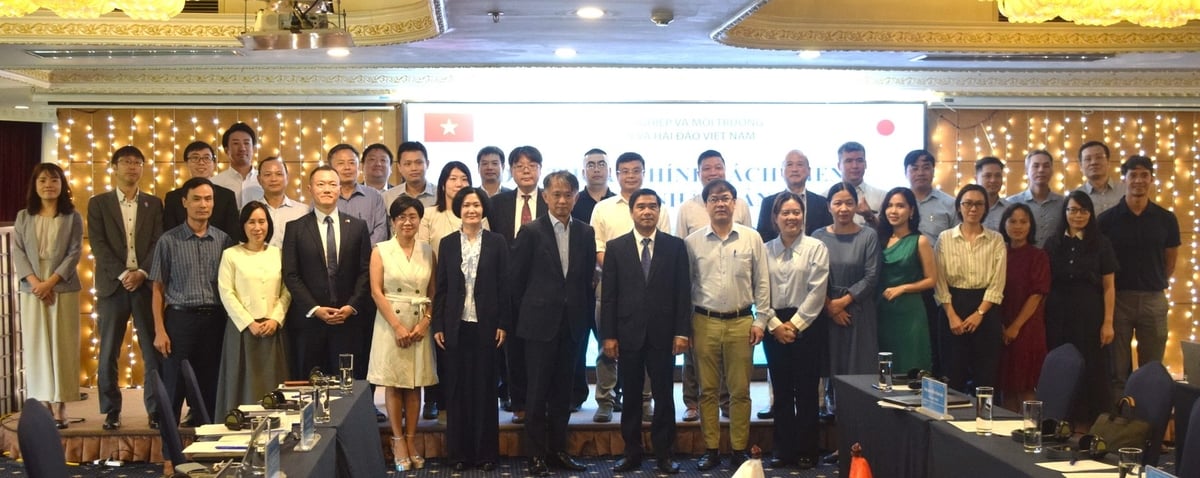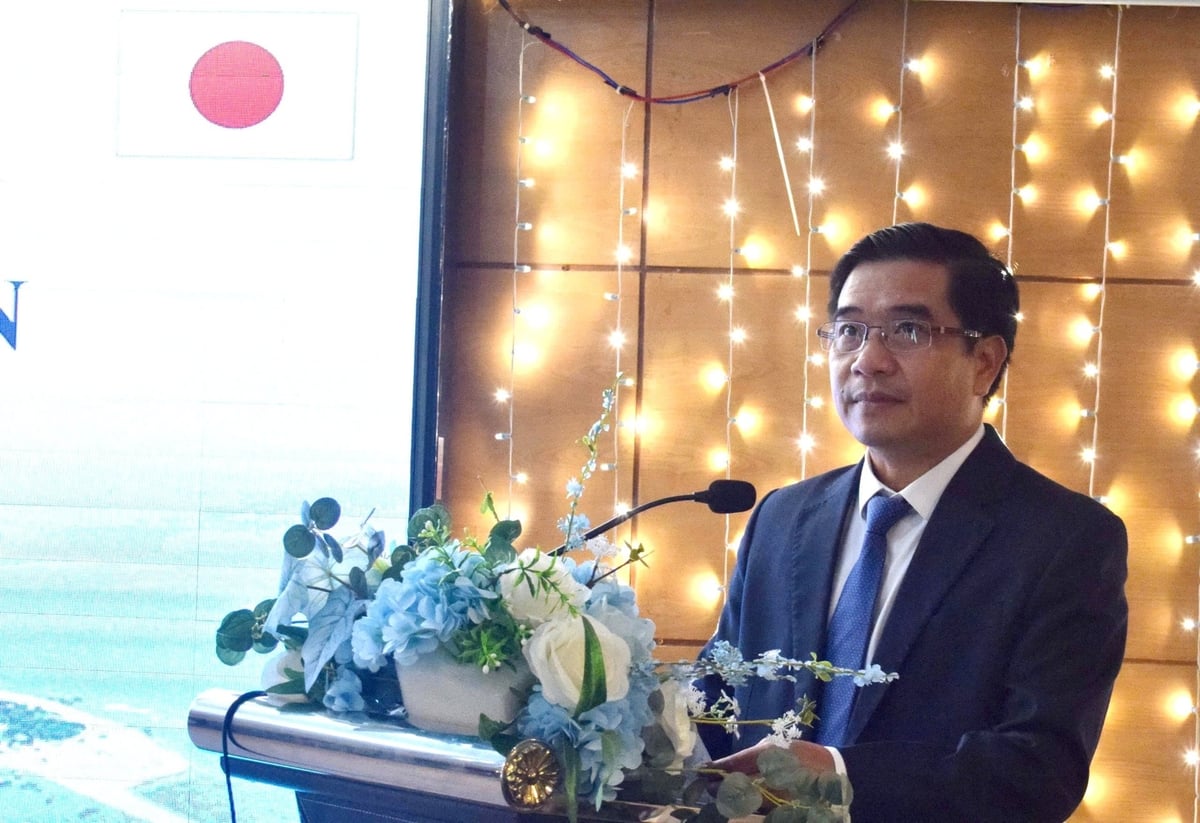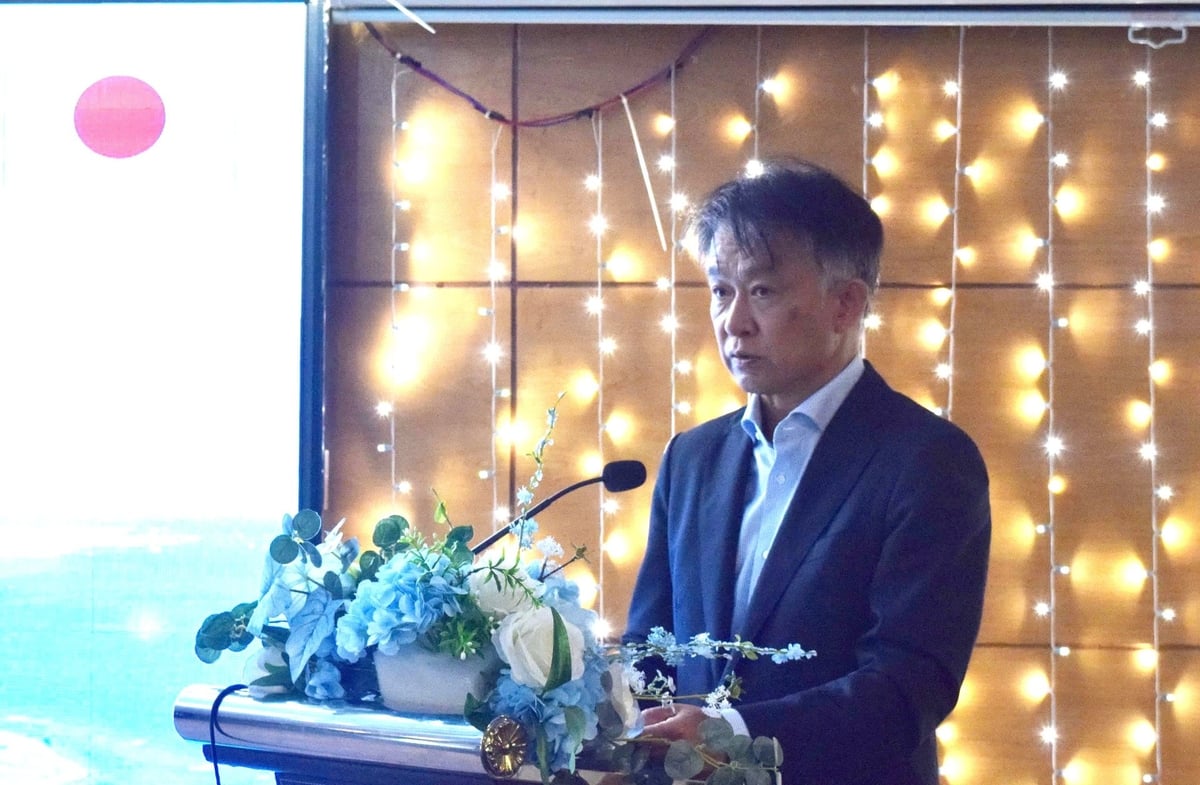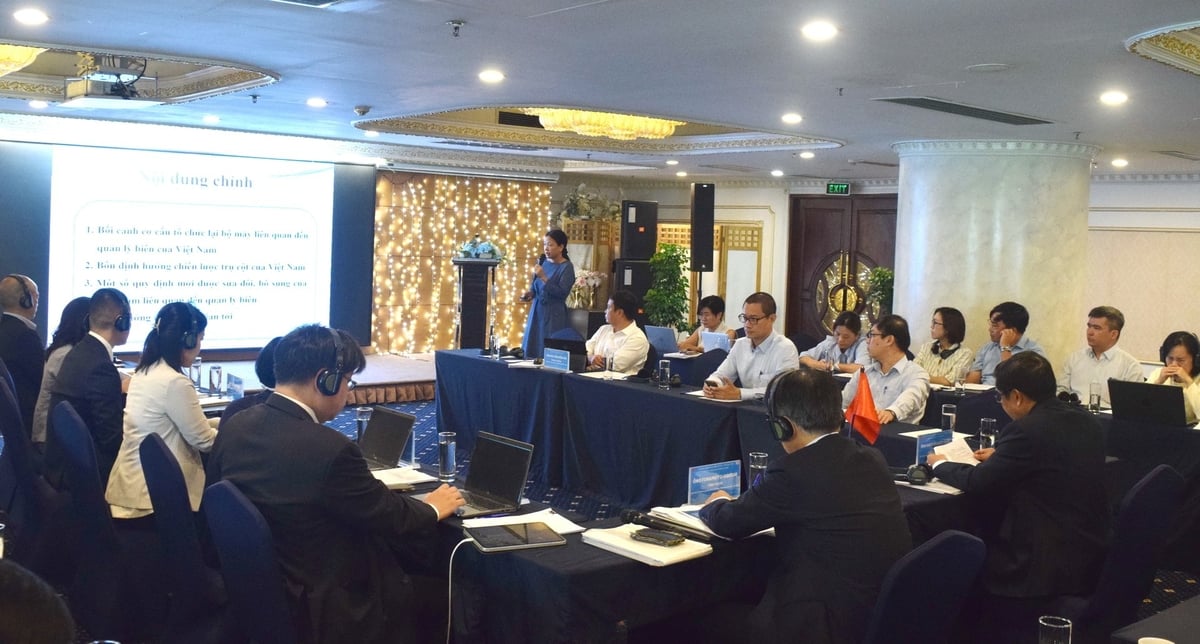October 20, 2025 | 14:35 GMT +7
October 20, 2025 | 14:35 GMT +7
Hotline: 0913.378.918
October 20, 2025 | 14:35 GMT +7
Hotline: 0913.378.918
On September 8 in Hanoi, the Viet Nam Agency of Seas and Islands under the Ministry of Agriculture and Environment, in collaboration with the Secretariat of the National Ocean Policy of Japan’s Cabinet Office, convened the Dialogue on Viet Nam-Japan marine economy policy 2025.

Delegates from both sides gathered to discuss a wide range of marine policy issues, continuing the strong momentum of cooperation established in previous years. Photo: Truong Giang.
Speaking at the dialogue, Mr. Nguyen Duc Toan, Director General of the Viet Nam Agency of Seas and Islands, emphasized that this year’s event built upon the success of the 2024 meeting in Tokyo. According to him, the dialogue demonstrates the growing depth, effectiveness, and close ties in bilateral cooperation. Particularly, the Memorandum of Cooperation on Ocean and Marine Policy, signed in 2018, has provided a solid foundation to strengthen the Extensive Strategic Partnership between Viet Nam and Japan, enabling it to advance further in both scope and substance.

Mr. Toan stressed that Vietnam always stands ready and eager to expand cooperation with Japan in formulating policies, improving legal frameworks, and strengthening the sustainable management and use of marine resources, while ensuring environmental protection. Photo: Truong Giang.
He underlined that, in the context of climate change and globalization, the sea represents not only a space of survival but also a strategic development domain for coastal states. Such collaboration between two nations, he noted, is not only in the shared interests of both nations but also benefits the broader region. This year’s dialogue provided a timely opportunity for the two sides to exchange views, share policies, and draw from each other’s experiences in marine management. The key topics discussed revolved around the sustainable use of marine resources, marine environmental protection, and cooperation in new fields such as offshore wind power development.
Quoting Mr. Toan: "Viet Nam is always ready and willing to broaden cooperation with Japan in policy-making, legislative improvement, and sustainable marine management and environmental protection, for the mutual benefit of both nations and the region at large."

Representing Japan, Mr. Funamoto Hiroshi, Secretary General of the National Ocean Policy Secretariat, reaffirmed his country’s interest in deepening collaboration with Vietnam. Photo: Truong Giang.
Mr. Funamoto explained that, guided by this vision, the Japanese Government has been advancing a comprehensive and systematic ocean policy, while coordinating closely with relevant ministries and actively engaging private sector resources. He further underlined that Viet Nam remains a key partner for Japan in realizing a "Free and Open Indo-Pacific", and that Tokyo looks forward to strengthening cooperation in sustainable marine economic development particularly in emerging areas such as green port initiatives and offshore wind power.
He highlighted that both nations place great importance on harnessing the ocean's vast potential as a foundation for socio-economic development while ensuring that the ocean is passed down sustainably to future generations.
The dialogue was not only an opportunity to exchange technical insights but also a forum to reinforce strategic trust and partnership. According to both delegations, the Viet Nam-Japan Marine Economy Policy Dialogue 2025 plays an important role in tightening connections, expanding cooperation, and supporting Viet Nam in implementing its Sustainable Marine Economic Development Strategy to 2030, with a Vision to 2045. It also adds further depth to the extensive strategic partnership between the two nations.

Through these exchanges, the dialogue reaffirmed the shared commitment of Vietnam and Japan to promote sustainable marine economic development, enhance resilience in the face of climate challenges, and ensure that the oceans continue to serve as a common heritage and a vital resource for present and future generations. Photo: Truong Giang.
During the meeting, delegates exchanged and discussed a variety of issues, including: updates on policies and legislation related to ocean governance and the marine economy in both countries; Viet Nam’s National Marine Spatial Planning for the period 2021–2030, with a vision to 2045; strategic orientations for marine economic sector development and green transition in maritime activities; experiences of both Japan and Viet Nam in offshore wind power development; directions for bilateral cooperation through to 2030, along with preparations for the agenda of the next annual meeting.
Translated by Kieu Chi

(VAN) When the government, scientists, and businesses work together in close collaboration, research and applications in biotechnology can truly innovate.

(VAN) Vietnam is facing major opportunities with gene-editing technology, yet the lack of a legal framework has kept many promising studies confined to laboratories.

(VAN) As many Asian countries has adopted flexible management of gene-edited crops, Viet Nam still lacks clear regulations, holding back the rise of this transformative technology.

(VAN) Vietstock 2026 promises to be a dynamic platform for knowledge exchange, business networking, and collaboration among industry professionals, aiming to foster innovation and sustainable development across the livestock value chain.

(VAN) After the merger, An Giang has strengthened management, advanced technology adoption, and institutional improvement to sustainably develop its clean water system and ensure safe water for local residents.

(VAN) With its bright, green, and clean learning environment, Nhon Nghia Primary School in Can Tho is integrating education with real-life experiences, nurturing environmental awareness among its students.

(VAN) The legal framework for gene editing needs to strike a balance between promoting innovation, ensuring biosafety, and conserving biodiversity, while aligning with international commitments.